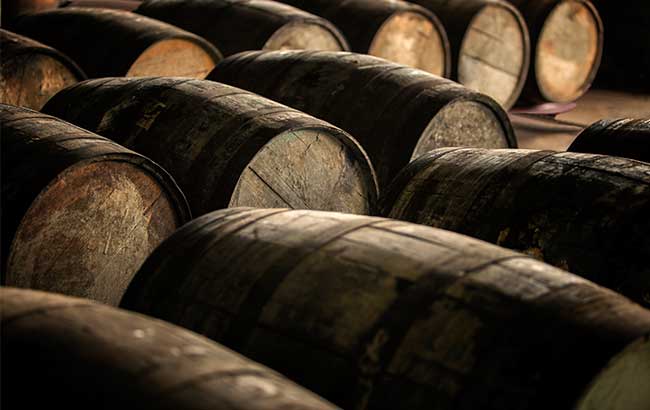ASA bans misleading cask investment ads
The UK’s advertising watchdog has banned adverts by two whisky cask investment companies for misleading consumers with unproven claims on financial returns.

Whisky Investment Partners and London Cask Company were both investigated by the Advertising Standards Authority (ASA) after it received complaints over whether the investment return claims they made were misleading and could be substantiated, and whether they made clear the risks involved with investing.
The ASA decided to uphold complaints made against Whisky Investment Partners’ online display ad, website and two paid-for Facebook posts from 2022. It also upheld complaints against two national newspaper ads, a website and a paid-for Google ad for London Cask Company in 2022.
The ASA challenged whether Whisky Investment Partner’s ads clarified the fees that applied, or that there were conditions to the service.
The online display ad, seen on 24 May 2022, included text that stated ‘cask investment get returns up to 12% per annum’. The ad linked to a page on the Whisky Investment Partners’ website.
It linked to a page with the heading ‘What is the best performing asset class of 2020? Whisky.’ Smaller text underneath stated: “We help investors get involved in a billion-pound market that has shown average returns of 8-12%* over the last couple of decades,” with a button to download a free guide.
Another Facebook post featured the text: “Earn between 8-12% returns per annum after making a purchase with us.”
The ASA concluded consumers would understand the investment return claims to mean they could expect to achieve a yearly return of up to 12% in the online ad, and a return of between 8%-12% in the Facebook post.
Whisky Investment Partners also cited a case study on the page featuring a client, Roger Parfitt, who allegedly retired early after his Scotch whisky investment earned him £225,000 (US$284,387).
Parfitt had sold two casks of whisky for £225,000, which he originally bought for £4,700 (US$5,940) in 1994, equating to annual returns of 16.5% and 11% for each cask, the ASA said.
While Parfitt sold the casks to Whisky Investment Partners in 2021, he had originally purchased them from elsewhere.
However, the ASA noted that the agreement between Parfitt and the company said that in the 12 months after the purchase, Whisky Investment Partners could promote the story and Parfitt had to reinvest some of the money to buy two new casks from the firm at a discounted rate.
As such, the ASA said the price the company paid for the two casks may not have reflected what they were actually worth at the time, as the firm anticipated using the case study in its promotional activities.
Furthermore, the ASA said that the case study indicated that “whisky cask investments were therefore lucrative” and if a consumer purchased a cask and held their investment for a number of years, as Parfitt did, then they could expect to make similar returns.
London Cask Co claims
Similar claims were made by London Cask Co, which had a newspaper ad in The Guardian in 2022 that featured the text: “Earn an average of 13%* per annum investing in whiskey.”
Furthermore, London Cask Co referenced the 2020 Knight Frank Wealth Report, featuring the statement: “Over the past 10 years, rare whiskey prices have increased by an impressive 586%***.” However, the ASA noted that this figure covered the decade prior to the beginning of 2020.
A complaint was also made against the company’s website, which claimed rare whisky had grown by 478% between 2010 and 2020, citing Knight Frank’s 2021 Wealth Report.
Knight Frank’s annual Whisky Index uses data from Rare Whisky 101, which tracks the UK auction prices of 100 bottles of rare Scotch whisky, as opposed to casks.
Therefore, the performance of bottles of whisky was not relevant to support the claims the company made in its ads, the ASA concluded.
The ASA added: “London Cask Co had two customers who had bought and sold casks of whisky through them. However, we understood that because those customers had sold their casks soon after they bought them, neither had made a return on their purchase.
“We therefore considered that because consumers would understand the claim to mean that they could earn an average of 13% a year by purchasing a cask of whisky from London Cask Co, and we had not seen evidence to demonstrate that was the case, we considered the claim was misleading.”
The London Cask Co said it did not believe the rules for regulated investment products would be applied to barrels of whisky.
Upheld rulings
The ASA’s CAP Code requires that marketing communications for investments make clear that the value of investments could go down or up, and also that significant limitations and qualifications were stated and presented clearly.
The ASA concluded that the ads from both Whisky Investment Partners and London Cask Company had failed to set out an offer for a financial product in a way that allowed it to be easily understood by consumers. The ASA said the ads could not appear again in their current form.
It also noted that none of the ads included material information about the fees and terms and conditions relating to investing in whisky casks.
The ASA asked the two companies to ensure they make clear that the value of investments in cask whisky was variable, and that past performance was not necessarily a guide for future performance.
The companies must also make clear that cask whisky investments are unregulated, and to ensure the fees and terms and conditions are visible.
The value of rare whisky in the UK fell by 4% in the year to June 2023 as all other luxury assets increased, according to Knight Frank’s latest report.
Related news
Top 10 spirits launches in June
